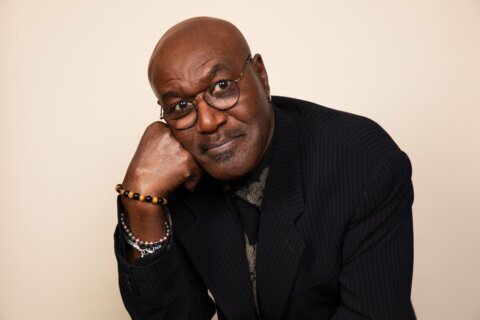WASHINGTON — Richard Linklater is without a doubt one of our best living filmmakers after “Slacker,” “Dazed and Confused,” “School of Rock,” “Boyhood” and the “Before Sunrise” trilogy.
But while “Last Flag Flying” is nowhere near his best work, it might just be his most impressive feat, simply in terms of taking a concept that shouldn’t work at all and somehow pulling it off.
That’s because the premise, on paper, appears blasphemous for a Veteran’s Day release, yet through Linklater’s lens it becomes a touching portrait of family, grief, faith and patriotism.
After his son is killed in Iraq, a grieving Vietnam vet (Steve Carell) recruits his old war buddies to bring the casket home for burial rather than to Arlington National Cemetery. Not only does this frustrate the military, it sparks a road trip with the clashing personalities of a bartender (Bryan Cranston) and a reverend (Laurence Fishburne) who haven’t spoken in 30 years.
The movie is worth seeing for the performances alone. How often do we get to watch three of this generation’s most skilled and beloved actors work across from each other for two hours?
Carell obviously plays the straight man, given the weight of his character’s grief. It’s a role more akin to his depressed uncle in “Little Miss Sunshine” (2006) than his zany antics in “Anchorman” (2004). It continues to prove his range: innocent nerd (“The 40-Year-Old Virgin”), lovable doofus (“The Office”), sympathetic father (“Crazy Stupid Love”), harsh stepdad (“The Way Way Back”), psychotic coach (“Foxcatcher”) and hustling athlete (“Battle of the Sexes”).
This “silent type” contrasts beautifully with Cranston’s outlandish, go-for-broke, devil-may-care performance. The five-time Emmy winner from TV’s “Breaking Bad” appears to be having a ball as the alcoholic, sex-crazed, atheist bartender. It’s he who often drives the story, stealing the show as the peer-pressure instigator in many of the film’s most memorable scenes. He’s also a believable veteran, having played a one-armed officer in “Saving Private Ryan” (1998).
Likewise, Fishburne made his film debut as a brash teenager surfing to the Rolling Stones in the Vietnam epic “Apocalypse Now” (1979). It’s only fitting that Fishburne returns 40 years later as the wise Vietnam vet, who’s seen the light and recognized the errors of his youth by converting from gung-ho officer to born-again reverend. At the film’s start, he is Morpheus on the blue pill. By the end, he’s tapped into his own flawed humanity as the film’s conscience.
If these characters feel familiar, it’s because Linklater patterned his script after Hal Ashby’s classic comedy “The Last Detail” (1973), starring Jack Nicholson and Randy Quaid as Navy sailors ordered to bring a young offender to prison while showing him one last good time. When you mine satirical comedy from the chain of command, it must be done delicately.
It’s a tough line to walk, creating a comedy/drama out of the ultimate sacrifice. “Last Flag Flying” contains several cringe-worthy moments asking the audience to awkwardly laugh while there are fresh coffins and folded flags on screen. This is the “Catch 22” baked into the premise: the material is too heavy if you’ve lost a loved one, even if the goal is therapeutic.
The only way it works is because of the Pat Tillman setup, where the military creates a heroic martyr myth to cover up the actual embarrassing cause of death. This setup is a smart move by Linklater and co-writer Darryl Ponicsan, having the military lie to Carell that his son died in an epic firefight, only for him to learn that the truth is much more mundane. Thus, the parental anger over such a lie helps to motivate the protagonist’s decision to steal the coffin.
Granted, it’s impossible to laugh at a soldier’s coffin strapped to a truck the way we did the dead aunt in the station wagon in National Lampoon’s “Vacation” (1983) or the dead uncle in the family van in “Little Miss Sunshine” (2006). The connotations are vastly different. Still, Linklater pulls it off — like only he can — picking his moments for comedy within the tragedy.
His saving grace is social commentary, mocking cell-phone and internet culture of the 2000s, while drawing profound parallels between Iraq and Vietnam. It’s a unique cross-generational look at two wars built on government lies, from the Gulf of Tonkin in Vietnam to WMDs in Iraq. Seeing as both President Obama and President Trump won election in opposition, it’s safe to say that most Americans are fed up with the government lying us into endless wars.
Thus, Middle America relates to the on-screen characters calling “bullsh*t” — and it’s in this sweet spot that we find the ability to laugh. As Cranston, Carell and Fishburne reminisce in the storage car of an Amtrak train, their camaraderie is contagious with a shaving analogy that leaves us howling. It’s here that Linklater taps into a message that could’ve been the tagline:
We have to laugh to keep from crying.









